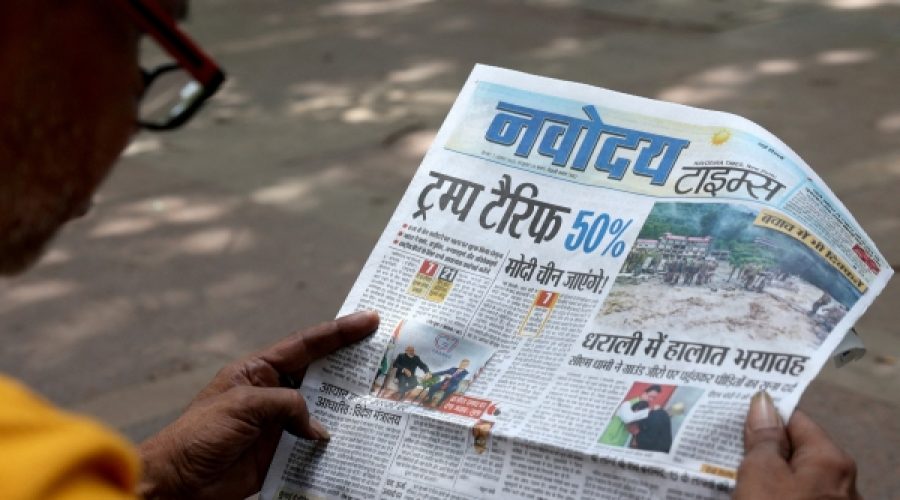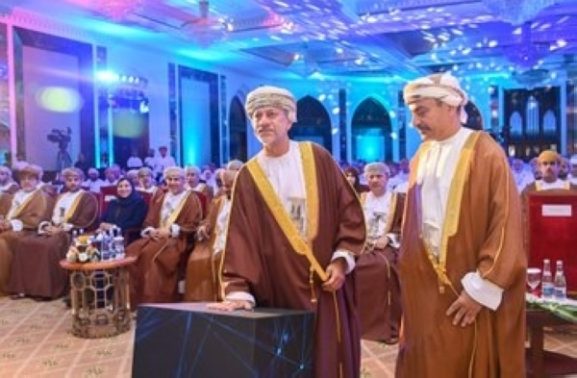تأثیر تعرفهها: چگونه درخواستها برای تحریم کالاهای آمریکایی میتواند بر کسب و کار شما در عمان تأثیر بگذارد
دهلی نو شرکتهای چندملیتی برجسته آمریکایی، از جمله مکدونالد، کوکاکولا، آمازون و اپل، با درخواستهای فزایندهای برای تحریم در هند مواجه هستند، زیرا رهبران تجاری و حامیان نخست وزیر نارندرا مودی در پاسخ به تعرفههای اخیر ایالات متحده، احساسات ضد آمریکایی را دامن میزنند.
هند، به عنوان پرجمعیتترین کشور جهان، بازاری حیاتی برای برندهای آمریکایی است که به سرعت از تعداد رو به رشد مصرفکنندگان ثروتمند خود بهرهبرداری کردهاند. بسیاری از این مصرفکنندگان، این برندهای بینالمللی را نماد موفقیت خود میدانند. به عنوان مثال، واتساپ، که متعلق به شرکت متا است، بزرگترین پایگاه کاربری خود را در هند دارد، در حالی که دومینوز بیش از هر برند دیگری در این کشور رستوران دارد. محصولات شرکتهایی مانند پپسی و کوکاکولا قفسههای فروشگاهها را پر کردهاند و اغلب وقتی فروشگاه جدید اپل افتتاح میشود یا استارباکس تخفیف ارائه میدهد، صفهای طولانی تشکیل میشود.
اگرچه در حال حاضر هیچ نشانهای از کاهش فروش وجود ندارد، اما جنبشی رو به رشد در رسانههای اجتماعی و حضوری، طرفداران خرید محصولات محلی به جای محصولات آمریکایی را به دنبال دارد، به ویژه پس از اعمال تعرفه 50% توسط دونالد ترامپ بر کالاهای هندی که نگرانیهایی را در بین صادرکنندگان ایجاد کرده و روابط بین دهلی نو و واشنگتن را تیره کرده است.
هیچ یک از شرکتها، از جمله مکدونالد، کوکاکولا، آمازون یا اپل، در پاسخ به سوالات رویترز اظهار نظر فوری نکردند.
مانیش چوداری، یکی از بنیانگذاران Wow Skin Science هند، ویدیویی را در لینکدین به اشتراک گذاشت که در آن از حمایت از کشاورزان و استارتاپهای محلی تشویق شده و هدف آن، دستیابی به شهرت جهانی با شعار «ساخت هند» است. او بر اهمیت اولویت دادن به تولید محلی تأکید کرد و اظهار داشت: «ما با افتخار برای برندهایی که متعلق به ما نیستند هزینه کردهایم، در حالی که تولیدکنندگان ما برای جلب توجه در کشور خود میجنگند.»
به همین ترتیب، رام شاستری، مدیرعامل DriveU، یک سرویس درخواست خودرو، در لینکدین ابراز کرد که هند باید جایگزینهای بومی خود را برای پلتفرمهایی مانند توییتر، گوگل و یوتیوب، مشابه مدل چین، ایجاد کند. در حالی که کسبوکارهای خردهفروشی هند به شدت با برندهای خارجی مانند استارباکس در بازار داخلی رقابت میکنند، دستیابی به شناخت جهانی همچنان یک چالش است. با این حال، شرکتهای فناوری اطلاعات هندی مانند Tata Consultancy Services (TCS) و Infosys با موفقیت در اقتصاد جهانی ادغام شدهاند و راهحلهای نرمافزاری را در سراسر جهان ارائه میدهند.
مودی در جریان یک گردهمایی اخیر در بنگلور، «درخواست ویژهای» برای خودکفایی مطرح کرد و اظهار داشت که شرکتهای فناوری هندی قادر به تولید کالا برای بازارهای جهانی هستند، اما باید نیازهای داخلی را در اولویت قرار دهند. او به شرکت خاصی اشاره نکرد.
با وجود تظاهرات ضد آمریکایی مداوم، تسلا روز دوشنبه دومین نمایشگاه خود را در دهلی نو با حضور مقامات وزارت بازرگانی هند و سفارت آمریکا افتتاح کرد.
جنبش سوادشی جاگران مانچ، وابسته به حزب بهاراتیا جاناتا به رهبری مودی، روز یکشنبه تجمعات عمومی کوچکی را در سراسر هند برای تبلیغ تحریم برندهای آمریکایی ترتیب داد. اشوانی ماهاجان، یکی از برگزارکنندگان این تجمع، به رویترز گفت: «مردم اکنون به محصولات هندی نگاه میکنند. مدتی طول میکشد تا ثمر دهد. این فراخوانی برای ملیگرایی و میهنپرستی است.» او همچنین نموداری را به اشتراک گذاشت که در آن جایگزینهای هندی برای صابونهای حمام، خمیردندان و نوشیدنیهایی که مصرفکنندگان میتوانند به جای برندهای خارجی در نظر بگیرند، فهرست شده است.
در رسانههای اجتماعی، یکی از کمپینها طرحی گرافیکی با عنوان «تحریم رستورانهای زنجیرهای خارجی» را به نمایش میگذارد که در آن لوگوهای مکدونالد و سایر برندهای رستوران به نمایش گذاشته شده است.
در اوتار پرادش، راجات گوپتا، ۳۷ ساله، که در رستوران مکدونالد در لکهنو غذا میخورد، نسبت به اعتراضات به تعرفهها بیتفاوت بود و صرفاً از یک قهوه ۴۹ روپیهای (۱TP۴T۰.۵۵) که به نظرش ارزشش را داشت، لذت میبرد. او اظهار داشت: «تعرفهها یک موضوع دیپلماسی هستند و قهوه مکپاف من نباید وارد آن شود.»
تحلیل ویژه از عمانت | بازار عمان را کشف کنید
همزمان با افزایش احساسات ضد آمریکایی در هند، کسبوکارهای عمانی باید تغییرات احتمالی در رفتار مصرفکننده جهانی را زیر نظر داشته باشندتأکید بر محصولات محلی، نشاندهندهی... فرصتهای پیش روی برندهای داخلی برای به دست آوردن سهم بازار محلی و منطقهای، اما با احتمال افول برندهای معتبر آمریکایی، خطراتی نیز وجود دارد. سرمایهگذاران هوشمند باید تنوعبخشی به پرتفوی خود را در نظر بگیرند شامل نوآوریهای داخلی، بهرهگیری از جنبش ملیگرایی رو به رشد و در عین حال هوشیار ماندن نسبت به پویایی بازار جهانی.



